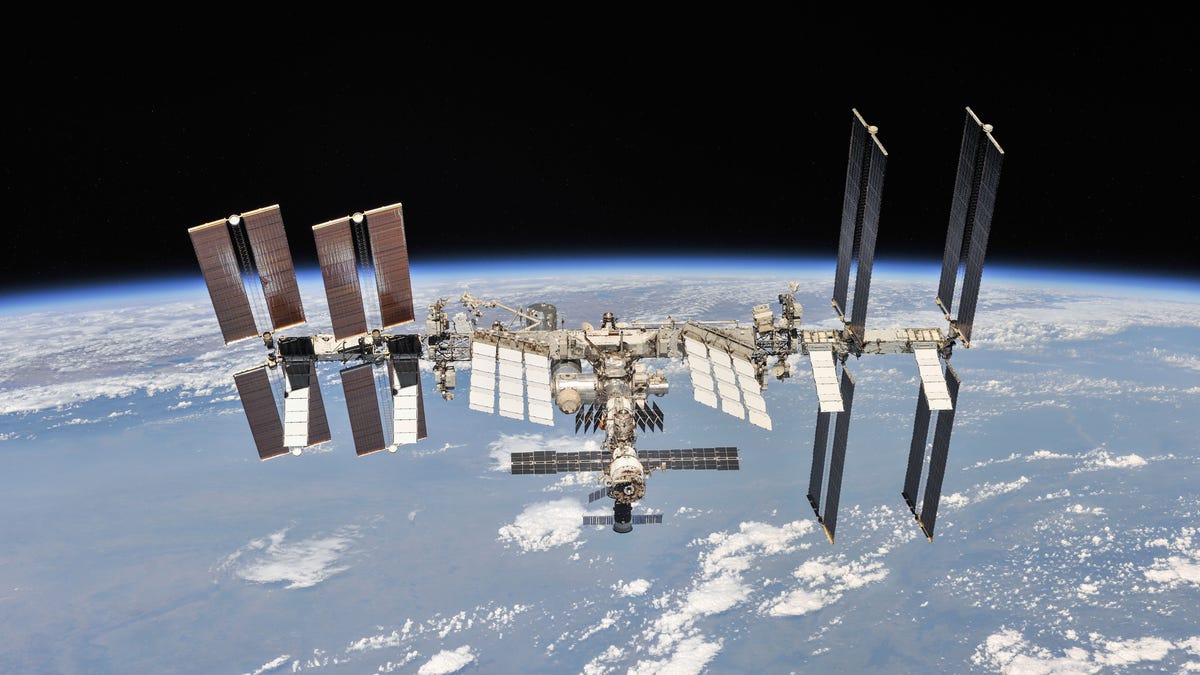Smoke alarm goes off on International Space Station, but crew is fine
Russian space agency Roscosmos said it's back to business as usual after running an air filter.
Smoke alarms are worrying enough on Earth. Nobody wants to hear one go off in space. Cosmonauts with space agency Roscosmos were woken overnight by a smoke alarm from the Russian Zvezda module, one of the oldest segments of the International Space Station.
The smoke alarm was triggered during automatic recharging of batteries, Roscosmos tweeted on Thursday. The crew turned on an air filter to clean out any possible smoke pollution. The space agency reported all systems were operating normally and the air was within acceptable parameters. And Russian news agency TASS reported that cosmonauts Oleg Novitskiy and Pyotr Dubrov continued to rest after dealing with the alarm.
Russian contributions to the ISS have been experiencing technical glitches. The oxygen supply system in the 21-year-old Zvezda module failed in 2020. The module was also the site of a small, pesky air leak that cosmonauts repaired earlier this year. Earlier this year, the new Russian Nauka laboratory module arrived and unexpectedly fired thrusters after docking, sending the ISS out of orientation.
The smoke incident didn't alter plans for the two cosmonauts to go on a spacewalk on Thursday to integrate Nauka with the ISS by connecting power and ethernet cables, among other tasks. There are five other crew members on board from NASA, Japanese space agency JAXA and the European Space Agency.
A NASA livestream covering the Russian spacewalk addressed the smoke, saying there was a smell of burned plastic, but no source was found and there was no impact to the crew.
Follow CNET's 2021 Space Calendar to stay up to date with all the latest space news this year. You can even add it to your own Google Calendar.


